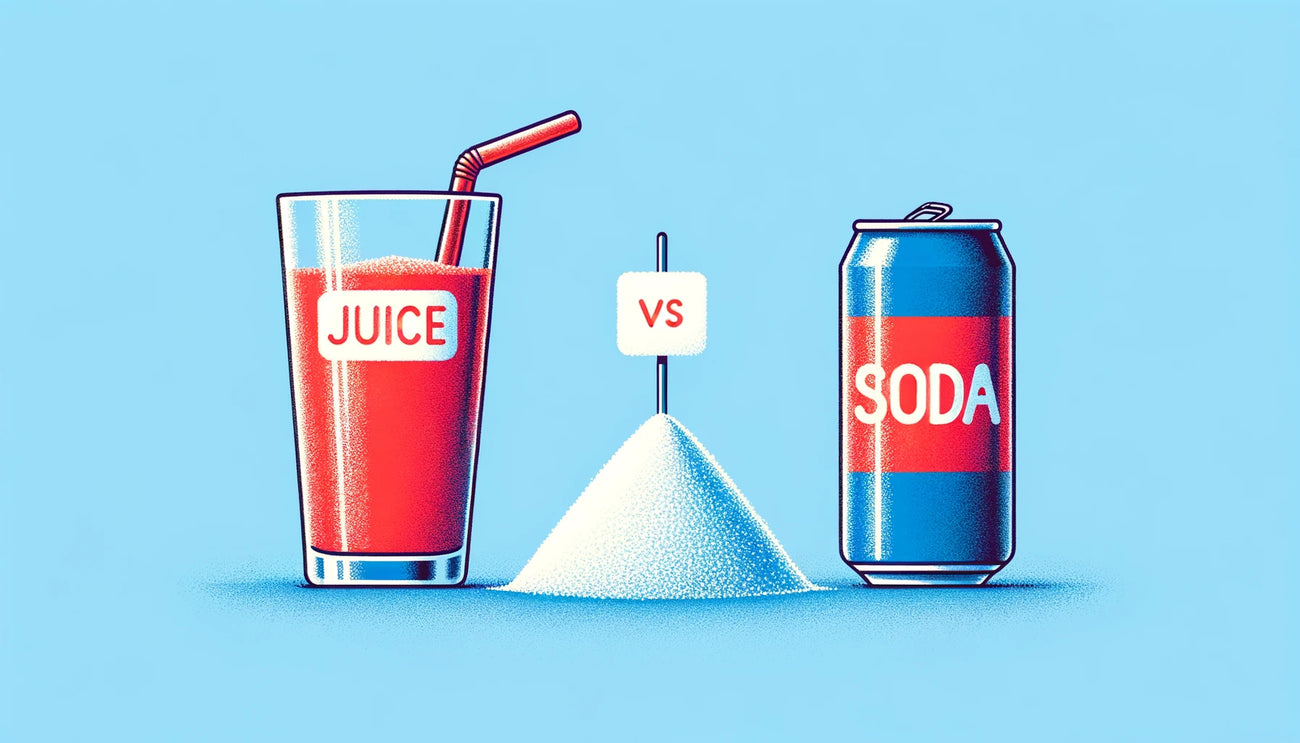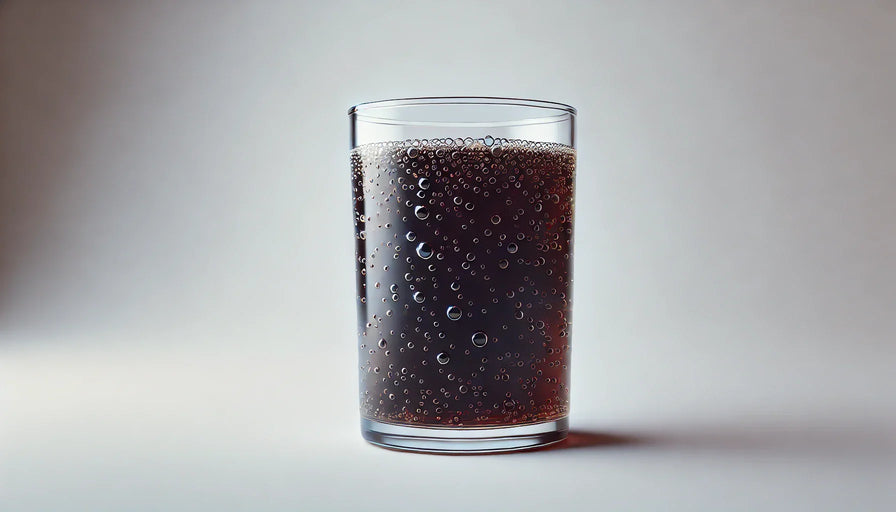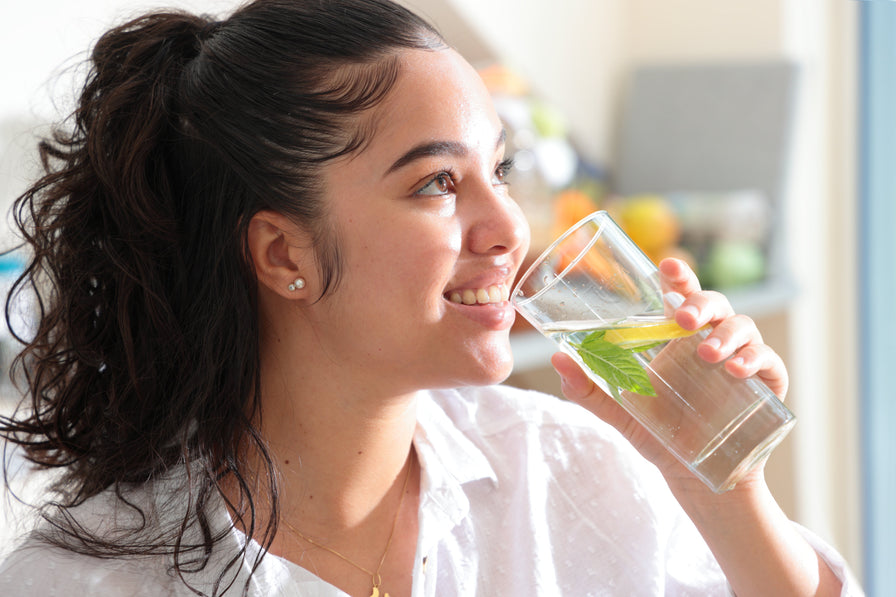
Why Juice is Just as Bad as Soda

Is juice better than soda?
No, juice can be just as detrimental as soda since it frequently contains high levels of sugar and calories.
In our day-to-day pursuit of a healthier lifestyle and habits, it's easy to fall into the trap of thinking that all fruit juices are healthier than soda. We think fruit is natural, therefore the juice from said fruit must be good for me.
However, what many don't realize is that just because juice is natural, doesn't mean it's always good for our health.
But let's be clear on something, canned sodas contain unnatural ingredients where juice is primarily natural. So no, juice is not worse than soda in terms of additives and harmful chemicals, but it does contain about the same amount of sugar which does leave cause for concern longterm.
Let's dive further into why juice might not be the healthier option we often believe it to be.
Table of contents
Does juice have the same amount of sugar as soda?
Yes, there are certain juices that have the same, if not more, sugar per serving than a can of soda which is truly crazy once you comprehend the nutritional facts.
This high sugar content is concerning because even though the sugar in juice is naturally derived from fruits, it still has the same impact on your body as added sugars, leading to rapid spikes in blood sugar levels.
Sugar in juice vs soda
It's essential to look at the numbers, specifically, the nutritional numbers when comparing the sugars found in juices and sodas. Listed below is a clear breakdown of the sugar content (per 12 oz serving) found in some common beverages that you may be drinking on the regular:

When stacked against one another, it's hard to deny that juice is any better for you than a can of soda. Even apple juice has almost as much sugar as soda!
We will note though, the types of sugars found in each of these beverages is the key to determining their overall nutritional value.
Types of sugars found in juice and soda
- Natural sugars in juice (fructose): Though these sugars are naturally occurring, they still elevate blood sugar levels similarly to the added sugars found in sodas.
- Added sugars in soda (sucrose or high fructose corn syrup): These are processed sugars that provide little to no nutritional value.
How the body breaks down sugars
Understanding how the body breaks down sugars is the first step in learning how to hack it.
When you consume sugar, your body converts it into glucose. Glucose is what provides our body with energy to help us function. Before you think the answer is to continue eating loads of sugar so your body can turn it into glucose and therefore energy, think again. If you consume more sugar than your body needs, it will store the excess glucose as fat.
Now, back to how sugar breaks down: the process starts in the small intestine, where enzymes convert sugar into glucose. Glucose, as we know, is essential, though an excess is detrimental. This glucose is then absorbed directly into the bloodstream, causing a swift rise in blood sugar levels.
As blood glucose levels rise, the pancreas responds by releasing insulin, a hormone that facilitates the uptake of glucose by cells throughout the body.
Insulin is like a key, and your cells are like locked doors.
Without insulin (the key), the glucose (sugar) remains in the bloodstream and cannot enter the cells, leading to high blood sugar levels. This is what happens in diabetes, where either the body doesn't produce enough insulin (Type 1 diabetes) or the cells become resistant to insulin's effects (Type 2 diabetes).
Therefore, frequent consumption of high-sugar beverages like fruit juice can lead to insulin resistance, where the body's cells become less responsive to insulin.
This condition is a precursor to type 2 diabetes and can contribute to other metabolic disorders. The CDC reported in 2022 that over 11.3% of Americans had been diagnosed with type 2 diabetes. This does not include the estimate of 8.5 million undiagnosed adults.
It's clear to see that understanding how the body processes sugars in juice underscores the importance of moderate consumption and the pursuit of healthier alternatives.

Common beverages and their sugar contents
Here's a comparison of the sugar content in common 12 oz servings of popular juice and soda brands:
Sugar in juices
- Tropicana Orange Juice: 33 grams of sugar
- Simply Apple Juice: 39 grams of sugar
- Ocean Spray Cranberry Juice Cocktail: 45 grams of sugar
- Minute Maid Grape Juice: 58 grams of sugar
- V8 Splash Fruit Medley: 34 grams of sugar
Sugar in sodas
- Coca-Cola Classic: 39 grams of sugar
- Pepsi: 41 grams of sugar
- Mountain Dew: 46 grams of sugar
- Sprite: 38 grams of sugar
- Dr. Pepper: 40 grams of sugar
As you can see, the sugar content in many popular juices is comparable to or even higher than that found in sodas, highlighting the need for careful consideration when selecting beverages.
Related read: 7 Low Sugar Beverages That’ll Satisfy Your Cravings
Why drinking juice is not the same as eating the fruit
When you consume whole fruit, you're benefiting from more than just its natural sugars.
Whole fruits are rich in dietary fiber, vitamins, essential minerals, and powerful antioxidants like flavonoids and polyphenols. These nutrients work together to boost the immune system, support heart health, and aid in digestion by promoting a healthy gut microbiome.
The fibre in particular slows down the absorption of sugar, leading to a more gradual rise in blood sugar levels compared to the rapid spikes caused by consuming fruit juice where you're gulping at a faster pace.
Fruit juice lacks most of the fiber found in whole fruits. The juicing process strips away the pulp and skin, which are primary sources of fiber.
As a result, you ingest a higher concentration of sugar without the moderating effects of fiber. Moreover, the high sugar content in juice can disguise the lack of other essential nutrients.
When people consume juice in place of whole fruits or a varied diet, they might miss out on important vitamins, minerals, and fiber. This can result in a nutrient imbalance and potentially lead to health issues over time.
When comparing juice to whole fruit, it's essential to consider the aspect of satiety. Consuming whole fruit promotes feelings of fullness and satisfaction, thereby reducing the likelihood of overeating.
Whereas drinking juice, even in large quantities, often does not provide the same sense of satiety, which may lead to increased overall calorie consumption.
Therefore, while fruit juice might seem like a convenient and healthy option, it is not as nutritionally balanced as consuming the fruit in its whole form.
Another important factor to consider when choosing between a piece of fruit for breakfast or grabbing juice on the go is the impact on your body. Spiking your glucose levels too high, too soon after waking, can affect you throughout the day.
Healthier alternatives to soda and juices
Choosing healthier alternatives to soda and juices can significantly impact your overall well-being. Here are some refreshing options to consider:
- Sparkling water
- Iced teas
- Coconut water
- and so much more!
You can also explore making fruit syrups at home to dilute with sparkling water to make a fun and unique soda. Making syrups at home allows you to control the ingredients and quality of sugar your body digests.
Try making sparkling water at home for a healthier alternative to both soda and juice!
So, is juice better than soda?
While fruit juice appears to be a healthier alternative to soda due to its natural origins, it isn't substantially better. Both beverages are high in sugar, which can contribute to various health issues if consumed excessively.
Remember, fruit juice often lacks the dietary fiber that whole fruits offer, leading to quicker spikes in blood sugar levels.
To enhance your overall well-being, it's advisable to consume whole fruits and consider healthier beverage alternatives that contain less sugar per serving, more fiber, and greater nutritional balance.
Recommended reading

How to Give Back During Thanksgiving 2025
Key takeaways Thanksgiving is a time to express gratitude and share with those in need. From volunteering at local shelters to donating food and essentials, there are numerous ways to give back to...

What Does Carbonation Do to Your Body?
What does carbonation do to your body? Carbonation alone typically has minimal effects; however, it can cause bloating and discomfort for some, and it may worsen acid reflux due to carbon dioxide ...

What Are the Health Benefits of Sparkling Water?
Summary Sparkling water isn't just a refreshing drink—it comes with surprising health benefits too. From aiding digestion to improving hydration, discover how sparkling water can be a healthy addi...